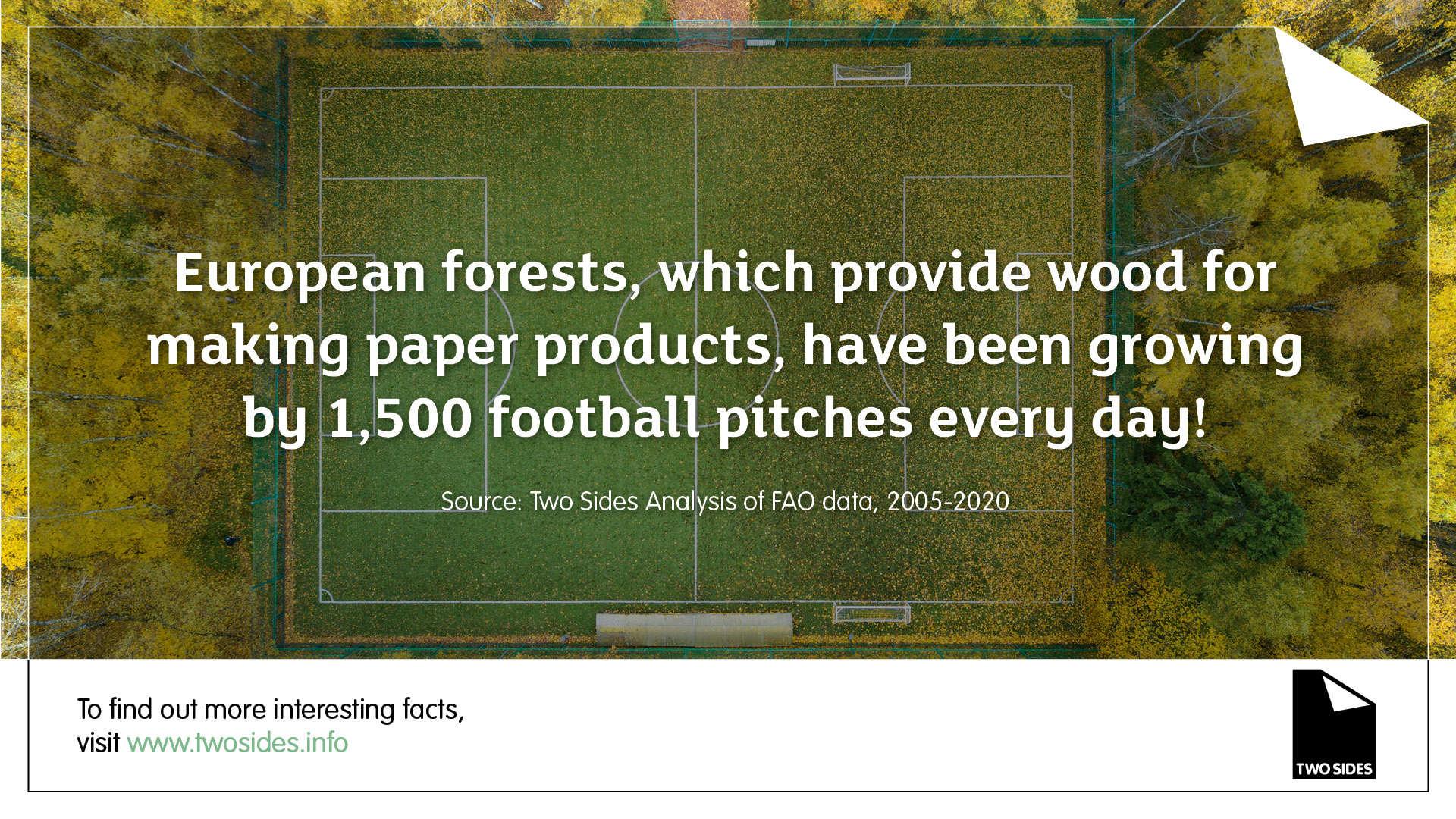What exactly is greenwashing?
Greenwashing and the paper industry
It remains vital that greenwashing around paper manufacturing and print production is challenged to ensure that the true environmental record of the industry is recognised. Unfortunately, common inaccuracies about print and paper are still a major issue for the industry.
These misconceptions are further reinforced, primarily by financial organisations, utility companies, and many other service providers. Such organisations increasingly encourage their customers to switch to electronic bills with claims that paperless bills, statements and other electronic communications save trees, are "greener" and better for the environment.
But instead of focusing on the potential cost savings of digital, often the incentive to switch is based on unfounded environmental claims such as "Go Green – Go Paperless" and "Choose e-billing and help save a tree". These messages are unsubstantiated, misleading and can have a lasting effect on consumer perceptions of paper.

The impact of greenwashing
These statements are considered greenwashing since they are not specific and not supported by reliable scientific evidence or relevant life cycle analysis. Without evidence to support the claim being made, such communication is greenwashing and contravenes advertising regulations in most European countries.
These statements are not only misleading, but also hugely damaging to an industry that employs 116,000 people in the UK alone (1,096,000 in the EU), in more than 8,400 businesses (115,700 in the EU). Most commonly, the driving reason for this move to digital communication is cost reduction. Greenwashing is costing the UK printing and postal industries an estimated £10 million per annum!.
This is where Two Sides comes in - a not-for-profit, global initiative promoting the unique sustainable and attractive attributes of print, paper and paper packaging. They operate throughout Europe, North America, South America, South Africa, Australia and New Zealand.
Two Sides actively engages with organisations found to be using unsubstantiated environmental claims about the use of paper and to date, over 60% of companies engaged by Two Sides have changed or removed misleading messages! Since 2010, the Two Sides campaign has changed or removed misleading environmental claims of over 1,125 global organisations, including many of the world's largest corporations. Ruddocks is a partner member of the Two Sides campaign.
Our aim is to address misleading environmental claims around paper and the print industry through our communications, campaigns and with the support of our member organisations, like Ruddocks.

Choice and better engagement
Consumers want the right to choose how they receive communications, printed or digital (76% of consumers surveyed by Two Sides in 2023 agreed!). Digital platforms are not suitable for everyone for many reasons including poverty, disability and rurality. Paper also supports marketing engagement, particularly in a world where so many of us suffer from digital fatigue. In fact, 94% of all mail is engaged with in some way.
At Ruddocks, we believe one supports the other, from both an environmental and marketing ROI point of view, and we work with our clients to make sure they are as informed as possible to make the right choices in line with what they are trying to achieve.
Get in touch with us today to find out how we can support you along your sustainable journey!


